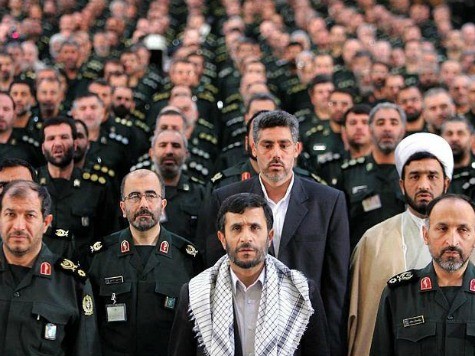Seeking to “hit him hard,” the National Iranian American Council (NIAC) and acting president Trita Parsi brought a frivolous defamation lawsuit against a critic. Now they face a $183,480.09 fine to his legal defense.
On April 8th D.C. District Court Judge John D. Bates ordered this huge penalty because of the abuses which NIAC and Parsi’s perpetrated for over two years during discovery (pre-trial phase where parties exchange evidence) in their nuisance suit brought against Hassan Daioleslam, an Iranian immigrant and editor of the Iranian American Forum.
Mr. Daioleslam’s 2007 writings had exposed NIAC and Parsi’s illicit public relation campaign on behalf of Tehran. In April, 2008 Parsi and NIAC filed Trita Parsi and National Iranian American Council v. Seid Hassan Daioleslam against Mr. Daioleslam. In their defamation suit, Parsi and NIAC alleged that Mr. Daioleslam’s investigative research and writings portrayed them in a false light.
The Legal Project, an activity of the Middle East Forum which works to protect the right in the West to freely discuss Islamist terrorism and other related issues, coordinated Mr. Daioleslam’s pro bono representation by Sidley Austin LLP. Leading Mr. Daioleslam’s defense, Senior Litigation Partner Timothy Kapshandy requested an array of documents and schedules from NIAC and Parsi to establish that Mr. Daioleslam’s work was merited. This phase of the litigation lasted over two years and was delayed by Parsi and other NIAC staff’s deliberate abuses.
These abuses include:
- Withholding 4,159 calendar appointments from production, including 999 entries that had been deleted and 715 entries that had been double-deleted from their server. The deleted entries included meetings with Iranian U.N. officials.
- Altering internal records by NIAC employee Patrick Disney changing at least 82 references in his calendar from the word “lobbying” to “legislative direct.”
- Withholding 5500 emails to and from Babak Talebi, “NIAC’s cofounder and erstwhile director of community outreach.” NIAC claimed that these emails did not contain any of the agreed upon search terms, which Judge Bates found “was not true.”
- Failing to include relevant computers and a shared server from production. This was only discovered due to a forensic sweep conducted by Mr. Daioleslam’s defense.
- Parsi misrepresenting when he used a NIAC desktop from early 2009 to 2010 and failing to explain “what computer he was using during that time.”
- Parsi claiming that his laptop was stolen in a hotel in Norway in March 2010 without ever being backed up. Not backing up the computer was negligent and sanctionable under the court’s discovery obligations. Yet Parsi also claimed that the hotel immediately replaced his computer which Mr. Kapshandy argued “win[s] the world championship of hotel service.”
- Withholding emails from Mr. Daioleslam’s defense which NIAC and Parsi showed their own experts: As Judge Bates chastised NIAC:
“Most disturbingly, plaintiffs apparently gathered emails for their experts that they failed to produce to defendant, which clearly shows that plaintiffs’ statement at the motions hearing that “[t]here may be technical explanations” for the failure to produce these documents is untrue.”
NIAC and Parsi’s defeat follows a heartening trend of these predatory lawsuits financially costing the abuser. In 2006, the Council of Islamic Relations not only had its defamation suit against Andrew Whitehead dismissed with prejudice, but also reached a “mutually agreeable settlement” in Mr. Whitehead’s favor. In 2007, Riad Elsolh Hamad’s frivolous defamation suit against Daniel Pipes was dismissed and Hamad was ordered to pay Mr. Pipes’ legal costs.
These cases should all stand as warnings to Islamists seeking to abuse the legal system as a sword and shield to silence their critics. The costs can be high for them.

COMMENTS
Please let us know if you're having issues with commenting.